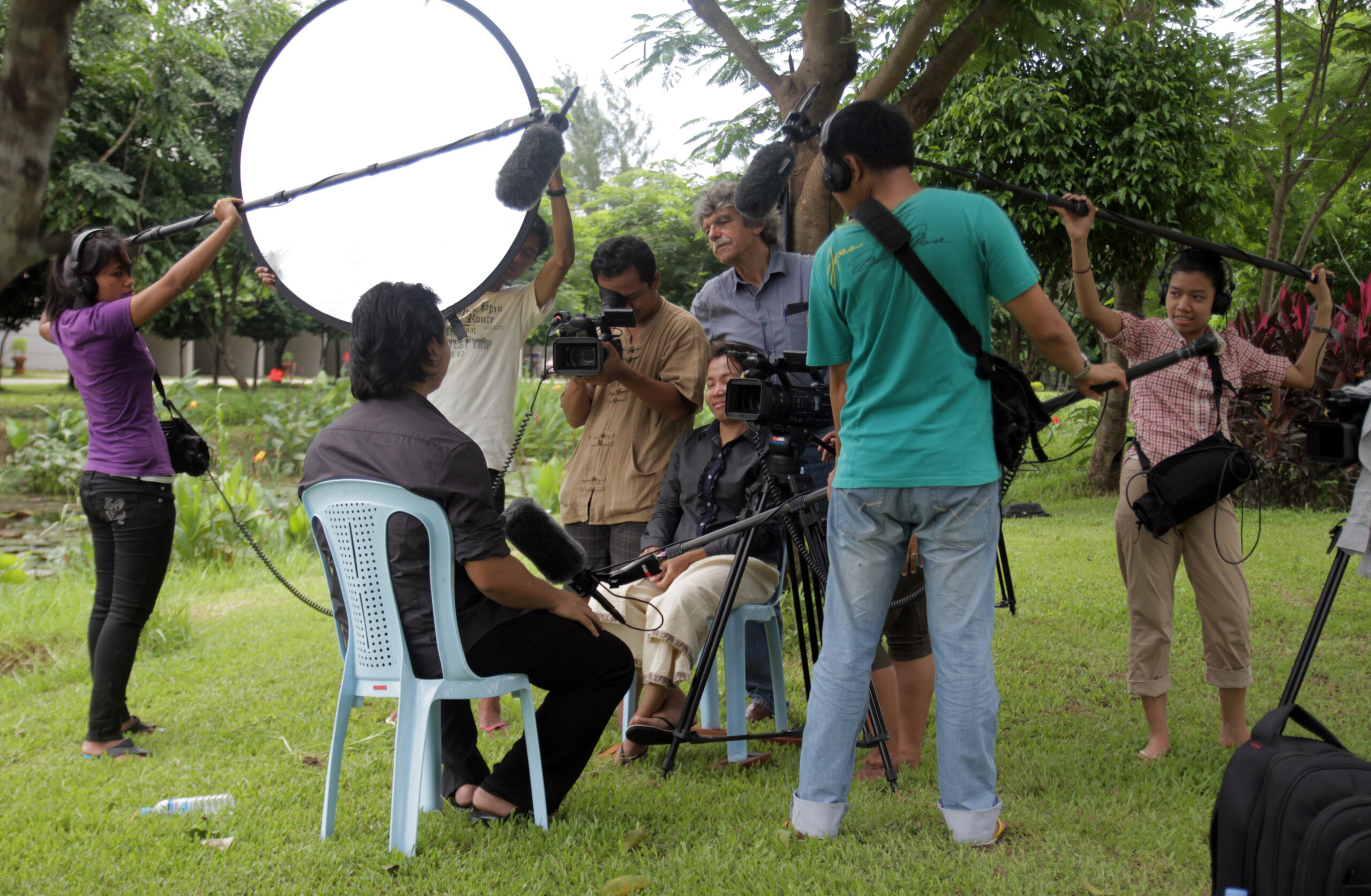19th 2015 Yangon Film School (Myanmar / Headquarters: Berlin, Germany)
[ Selection Manager ] International Advisor, Klaus-Dieter Lehmann (Germany)

The Yangon Film School (YFS) was established in 2005 by UK-born Anglo-Burmese filmmaker Lindsey Merrison, who lives in Berlin. Her own association with Myanmar began in 1989 when she accompanied her Anglo-Burmese mother on a trip to her Burmese homeland and later filmed a documentary, Our Burmese Days, there. Her next film brought her into contact with creative young Burmese desperate to learn about filmmaking. Merrison realised their wish when, in spite of numerous constraints, she returned with a group of experienced filmmaking colleagues from Australia and Europe to hold the very first Art of Documentary Filmmaking workshop in Yangon, Myanmar in 2005.
She has since worked extensively to expand the School’s curriculum into a fully-fledged three-year study programme offering, besides introductory courses in documentary filmmaking and editing, classes in film history, analysis, sound design and postproduction, screenwriting, fictional filmmaking and production. So far, the School has provided training free of charge for over 160 students from all walks of life and ethnic backgrounds. Merrison herself travels to Yangon from Berlin at least four times a year to oversee the School’s activities.
Many of the documentaries made by the School’s students and graduates have won awards at international film festivals. When more than 130,000 people lost their lives in the 2008 cyclone, YFS students and graduates immediately went to the delta region to record the devastating damage and interview survivors. The result was the documentary Nargis – when time stopped breathing. However, censorship was harsh under the military dictatorship that lasted until 2010 and screening the documentary in Myanmar was at first impossible.
“It was illegal to film at the time,” says Merrison. “The government tried to cover up the disaster when they were not able to get aid quickly to the people affected. Our students filmed the aftermath of the cyclone and created a very moving work. To this day it remains one of the films of which I’m most proud.” Having won a number of international awards, the documentary was shown for the first time in Myanmar in 2012 at the Wathann Film Festival.
One of the cinematographers on Nargis was 40-year-old Tin Win Naing, who is also one of the School’s very first graduates. His work as a documentarian attracted unwanted attention from the military regime at the time, forcing him to flee over the border to northern Thailand for three years in 2009. He is currently working on a documentary based on those experiences – and also now teaches cinematography to a new generation of students at YFS.
The School’s annual budget of approximately 600,000 Euros is currently funded by grants from the European Union, Germany’s Goethe Institut and the Finnish Foundation for Media and Communication (VIKES). Yangon Film School hopes to use the Grant for Young Artists towards funding a feature film produced in a documentary style.
In 2006, YFS graduates founded the School’s production arm, Yangon Film Services, a social enterprise which produces films on behalf of local and international non-governmental organisations, among others. The School’s goal is to find a large permanent home for YFS and hand over operations to a Myanmar-run administration.
While there has been a certain amount of progress in media deregulation since the country began moving towards democracy in 2011, Merrison says: “I hope that being selected as a grant recipient will convince the Myanmar government that it is worth thinking of YFS as a key partner for the development of the creative media industries in Myanmar.”

